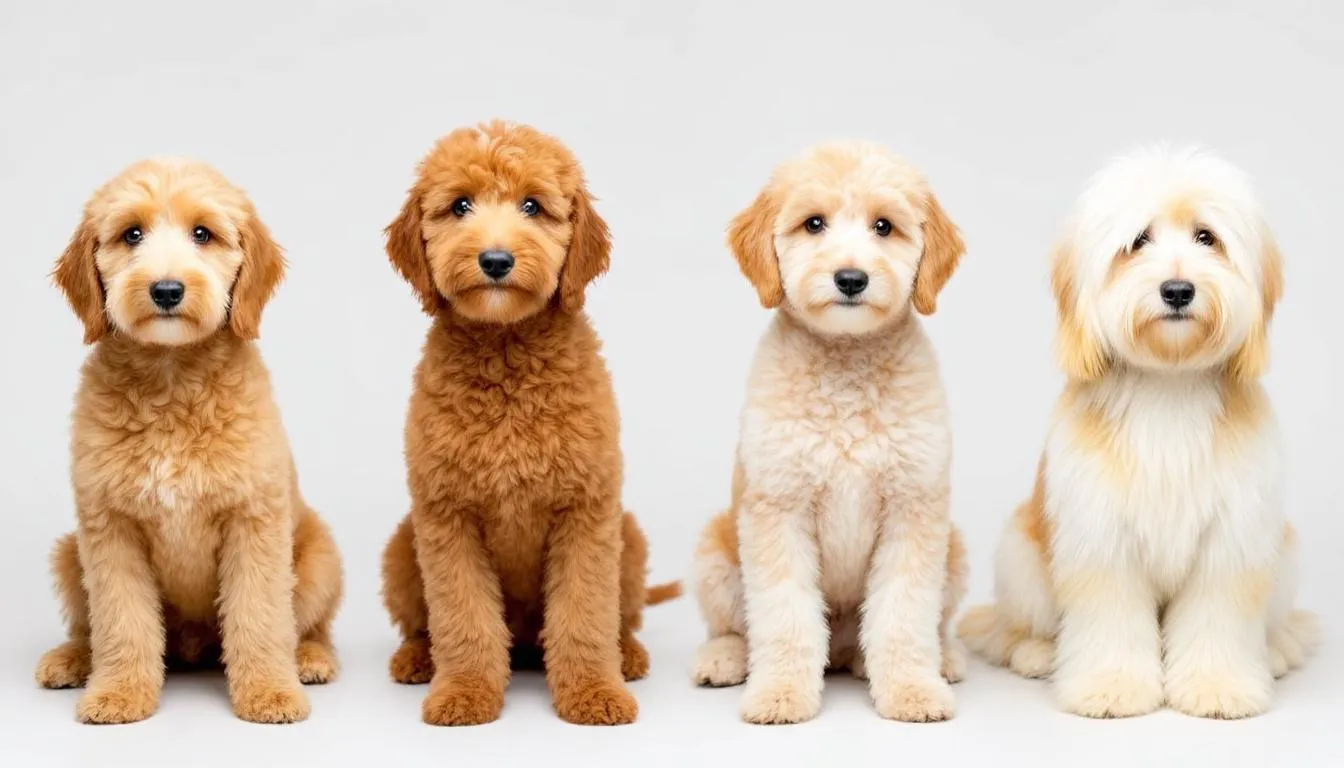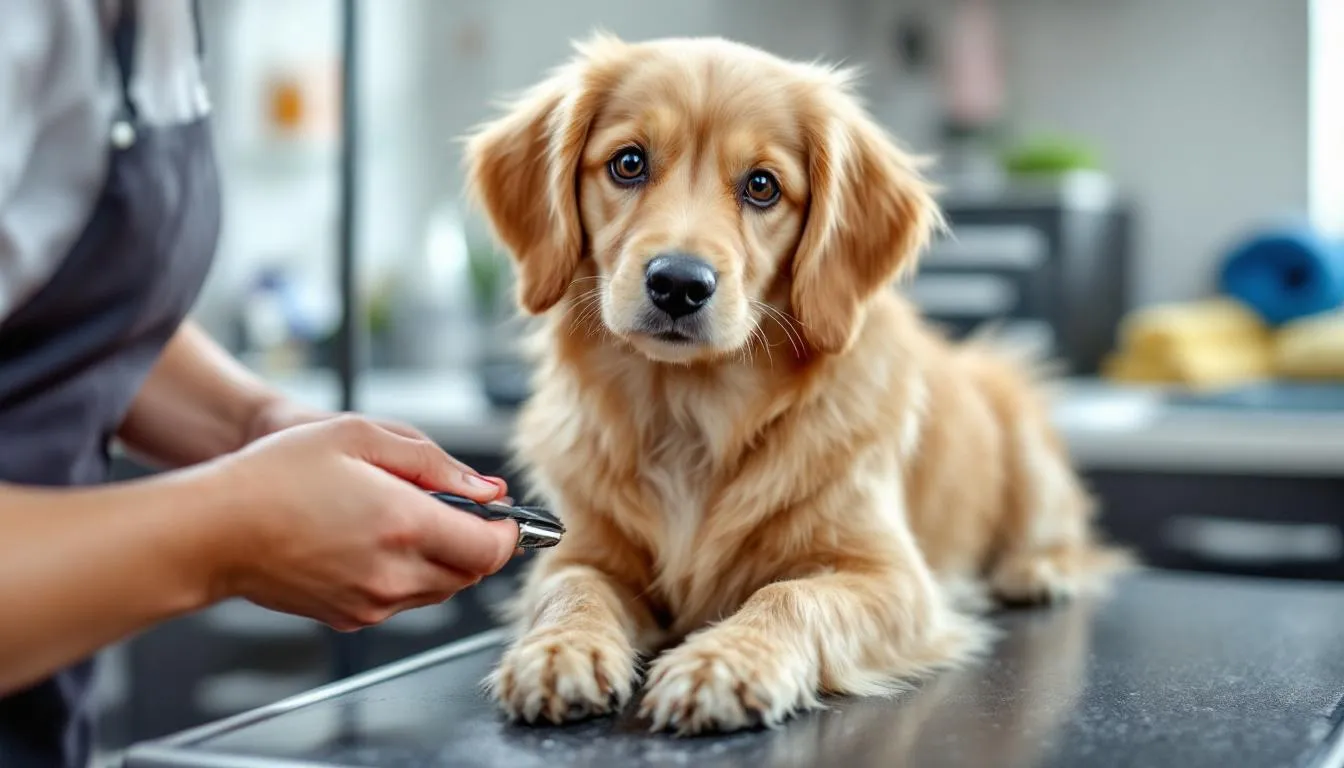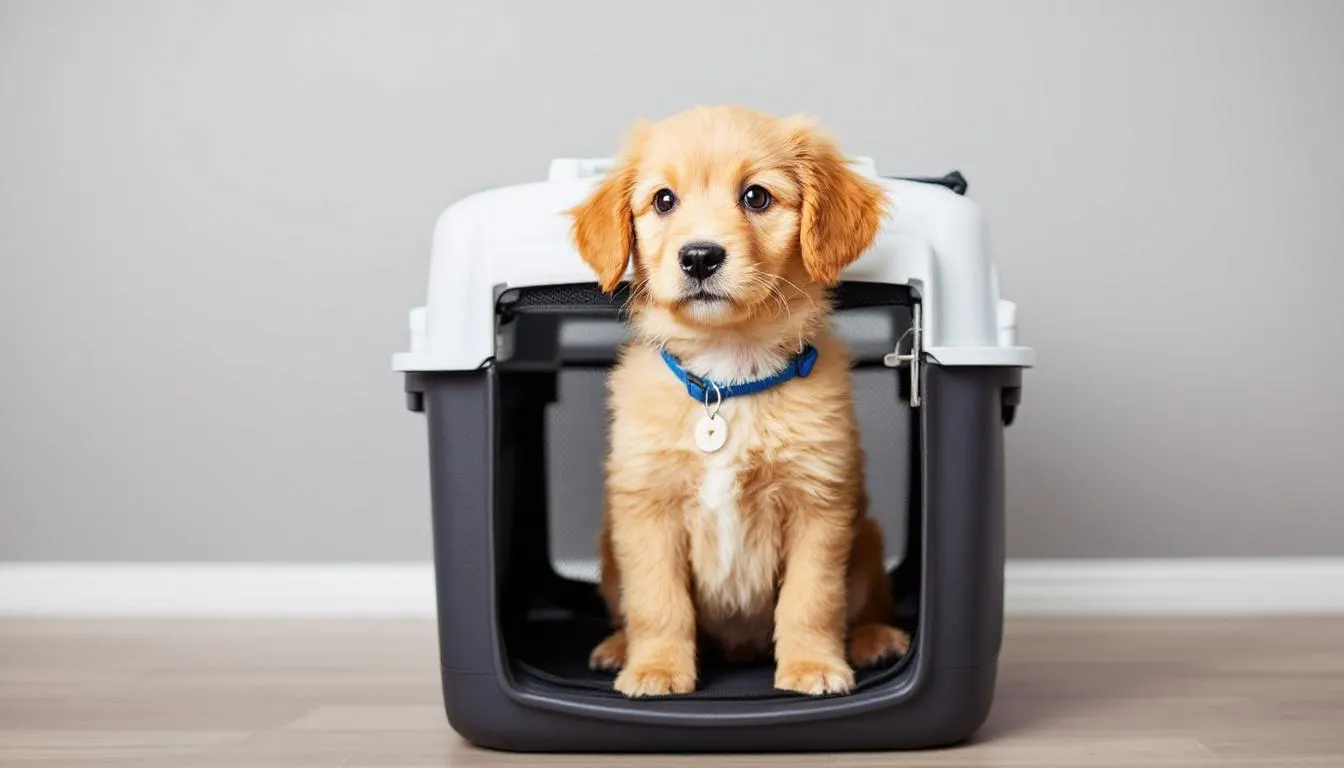Introduction to the Breed
The mini goldendoodle is a delightful crossbreed that brings together the best qualities of the golden retriever and the miniature poodle. Known for their highly intelligent and affectionate nature, mini goldendoodles make wonderful companions for families, singles, and anyone seeking a loyal friend. Their smaller size makes them especially well-suited for apartment living, as they adapt easily to different environments and thrive on human companionship.
Mini goldendoodles are celebrated for their low shedding coats, which are a major advantage for those who prefer a cleaner home or have mild allergies. These dogs are not only loving and loyal, but also highly trainable, making them an excellent choice for both first-time dog owners and experienced pet parents. Their need for regular mental stimulation and exercise ensures they remain happy and well-adjusted, while their playful personalities bring joy to any household. Whether you’re looking for a devoted family member or a cheerful companion, the mini goldendoodle stands out as a breed that offers both companionship and adaptability.
Understanding the Parent Breeds
To truly appreciate what makes mini goldendoodles so special, it helps to understand their parent breeds. Golden retrievers are beloved for their loyal, sweet, and friendly personalities, making them one of the most popular family dogs. They are known for their gentle nature and ability to get along with children, other pets, and people of all ages.
On the other hand, miniature poodles are highly intelligent and prized for their hypoallergenic, low-shedding coats. Poodles are quick learners, eager to please, and excel in training, which contributes to the mini goldendoodle’s reputation as a highly intelligent and trainable breed. The combination of the golden retriever’s affectionate temperament and the miniature poodle’s intelligence and hypoallergenic qualities results in a mini goldendoodle that is both loving and easy to live with.
This unique blend makes mini goldendoodles an excellent choice for families with children, those with other pets, and individuals who may have severe allergies. Their coats, which can range from wavy to curly, help reduce shedding and dander, making them a popular option for anyone seeking a loyal, sweet, and hypoallergenic companion.


Available Mini Goldendoodle Puppies for Sale
The current market for mini goldendoodle puppies remains robust across the United States, with reputable breeders offering litters throughout the year. Most established breeders maintain waiting lists due to consistent demand, particularly for specific generations and coat colors. Some puppies have already found a new home, reflecting the successful placement process and the popularity of these puppies.
Current litters ready for adoption typically include various generations: F1, F1B, and F1BB, each offering different coat types and shedding levels. For those seeking an even smaller size, toy goldendoodles are also available, providing a compact, hypoallergenic option. Price ranges generally fall between $1,500 to $3,500, though this varies significantly based on generation, breeder reputation, geographic location, and specific lineage quality.
Quality breeders ensure health-tested parents with genetic screening for hip dysplasia, von Willebrand’s disease, and hypothyroidism. When you bring your goldendoodle puppy home, expect to receive health guarantees, complete vaccination records, and ongoing breeder support during the transition period.
The smaller size makes these dogs particularly appealing for families in apartments or homes with limited yard space, yet they maintain the energy and intelligence that make goldendoodles such engaging companions.
For updated photos, current availability, or more information about our puppies and upcoming litters, please visit our page.


What Makes Mini Goldendoodles Special
Mini goldendoodles represent the perfect crossbreed, combining the golden retriever’s naturally affectionate nature with the poodle’s intelligence and hypoallergenic coats. This thoughtful breeding creates dogs that excel as both family pets and companions for individuals seeking a loyal, sweet-natured friend. Mini goldendoodles are especially good with kids, making them an ideal choice for families with children.
Their ideal size for apartment living sets them apart from standard goldendoodles. Standing 13-20 inches tall and weighing 15-40 pounds when fully grown, these dogs adapt well to various living situations while maintaining the playful, energetic personality that families love.
The hypoallergenic qualities inherited from their poodle parents make mini goldendoodles suitable for families with mild to moderate allergies, though it’s important to note that no dog is completely hypoallergenic. Regular grooming and proper coat maintenance help minimize allergen exposure for sensitive family members.
Perhaps most importantly, their exceptional intelligence and eagerness to please makes training straightforward for new dog owners. These highly trainable dogs respond well to positive reinforcement and tend to bond quickly with all family members, including children and other pets. Mini goldendoodles have a remarkable sense for perceiving and responding to their owners' emotional needs, making them excellent emotional support animals. Their intuitive and empathetic nature helps alleviate anxiety, providing comfort and support to those who need it most.
With proper care and regular veterinary checkups, mini goldendoodles enjoy a lifespan of 10-15 years, providing families with over a decade of loyal companionship.
Characteristics of Mini Goldendoodle Puppies
Mini goldendoodle puppies are truly adorable pups, capturing hearts with their playful antics and endearing teddy bear looks. These puppies grow into highly intelligent and loyal dogs, known for their affectionate nature and eagerness to bond with their families. Their coats, which can be curly or wavy, require regular grooming to prevent mats and tangles, ensuring they stay comfortable and looking their best.
Mini goldendoodle puppies are highly social and thrive on interaction with people and other pets. With proper training and early socialization, they quickly become well-mannered family members who get along beautifully with children, other dogs, and even cats. Their smaller size makes them a great fit for apartment living or homes with limited space, while their low-shedding coats are a bonus for those with allergies.
These pups are quick learners and respond well to positive reinforcement, making training an enjoyable experience for both puppy and owner. With their playful spirit and loving disposition, mini goldendoodle puppies are a wonderful addition to any family looking for a loyal, intelligent, and adaptable companion.
Low Shedding Coat
One of the standout features of mini goldendoodles is their low-shedding coat, a trait inherited from their miniature poodle parent. This makes them an excellent choice for individuals with severe allergies or anyone who prefers a cleaner, low-maintenance home environment. While no dog is completely hypoallergenic, mini goldendoodles are known for producing less dander and shedding far less than many other breeds.
Their coats can vary from curly to wavy, each with its own unique charm and grooming needs. Regular grooming is essential to keep their coats free from mats and tangles, especially in areas prone to knotting. Owners will appreciate that, with consistent care, the low-shedding coat of a mini goldendoodle not only looks beautiful but also helps minimize allergens in the home.
Whether you’re drawn to their curly or wavy coats, mini goldendoodles offer a hypoallergenic and low-shedding option for dog lovers who want a loyal companion without the hassle of constant shedding. With the right grooming routine, these adorable goldendoodles remain comfortable, healthy, and a joy to have as part of the family.


Understanding Mini Goldendoodle Generations
The generation of your mini goldendoodle significantly affects coat type, shedding patterns, and allergy-friendliness. Reputable breeders are focused on producing healthy, well-tempered mini goldendoodles with desirable coat types and allergy-friendly traits. Understanding these differences helps you choose the right match for your family’s specific needs and lifestyle.
|
Generation |
Poodle % |
Golden Retriever % |
Coat Type |
Shedding Level |
Best For |
|---|---|---|---|---|---|
|
F1 |
50% |
50% |
Wavy to loose curly |
Moderate |
Balanced temperament seekers |
|
F1B |
75% |
25% |
Curly |
Very low to none |
Mild allergy sufferers |
|
F1BB |
87.5% |
12.5% |
Tightly curled |
Non-shedding |
Severe allergy sufferers |
Generation
Poodle %
Golden Retriever %
Coat Type
Shedding Level
Best For
F1
50%
50%
Wavy to loose curly
Moderate
Balanced temperament seekers
F1B
75%
25%
Curly
Very low to none
Mild allergy sufferers
F1BB
87.5%
12.5%
Tightly curled
Non-shedding
Severe allergy sufferers
F1 Mini Goldendoodles (50% Golden Retriever, 50% Poodle)
F1 mini goldendoodles showcase the classic teddy bear appearance that draws many families to this cross. Their wavy to loose curly coats offer moderate shedding—significantly less than golden retrievers but not completely hypoallergenic.
These first-generation crosses display a balanced temperament combining both parent breeds’ best qualities. The golden retriever’s gentle, family-oriented nature blends beautifully with the poodle’s intelligence and trainability, creating highly intelligent dogs that form strong bonds with their families.
F1 mini goldendoodles typically command prices at the lower end of the range due to higher availability among breeders. This generation works well for families seeking the goldendoodle experience without severe allergy concerns.
F1B Mini Goldendoodles (75% Poodle, 25% Golden Retriever)
The f1b mini represents the most popular generation for families seeking hypoallergenic pets. With 75% poodle genetics, these dogs develop curlier coats with very low to no shedding, making them excellent choices for households with mild allergies.
This generation enhances poodle intelligence while maintaining the golden retriever’s friendly, outgoing personality. F1b mini goldendoodles often display enhanced problem-solving abilities and respond exceptionally well to mental stimulation activities.
For first-time doodle owners with allergy considerations, f1b mini goldendoodles offer the ideal balance of manageable grooming needs and reduced allergen exposure. Their coats require regular brushing to prevent mats, but professional grooming every 6-8 weeks keeps them looking their best.
F1BB Mini Goldendoodles (87.5% Poodle, 12.5% Golden Retriever)
F1BB mini goldendoodles provide the most hypoallergenic option available, featuring tightly curled, non-shedding coats that work best for families with severe allergies. With 87.5% poodle genetics, these dogs inherit the strongest hypoallergenic qualities while retaining enough golden retriever influence for a sweet, family-friendly temperament.
This generation requires the most intensive grooming schedule, with professional visits every 6-8 weeks essential for coat health and appearance. Daily brushing becomes particularly important to prevent matting in their dense, curly coats.
F1BB mini goldendoodles often command the highest prices due to specialized breeding requirements and lower availability. However, for families with serious allergy concerns, the investment proves worthwhile for the peace of mind these low shedding companions provide.
What to Look for in Mini Goldendoodle Breeders
Selecting the right breeder determines not just your puppy’s immediate health, but their long-term wellbeing and temperament. Quality breeders invest heavily in health testing, proper socialization, and ongoing support that makes the difference between a wonderful experience and potential heartbreak.
Start by verifying health testing certificates for both parent dogs, including OFA hip and elbow clearances. Responsible breeders screen for conditions like von Willebrand’s disease, progressive retinal atrophy, and other genetic concerns common to both golden retrievers and poodles. These test results should be readily available and verifiable through official databases.
Visit the breeding facility if possible, or request detailed photos and videos if distance makes in-person visits impractical. Clean, licensed facilities with proper socialization practices produce confident, well-adjusted puppies. Look for breeders who expose puppies to various sounds, surfaces, and gentle handling from birth through the critical 8-week socialization period.
Quality breeders maintain strict policies about puppy release timing, never allowing adoptions before 8 weeks of age. By this time, puppies should have received their complete vaccination series and been thoroughly health-checked by a licensed veterinarian.
Written health guarantees covering genetic conditions for at least 2 years demonstrate breeder confidence in their breeding program. These guarantees typically cover major genetic disorders and provide recourse if serious hereditary conditions develop.
Request references from previous puppy buyers and ask about the breeder’s veterinary relationships. Established breeders maintain ongoing relationships with veterinarians who know their lines and can speak to the overall health and temperament of their dogs.
Most importantly, reputable breeders encourage visits and willingly introduce you to at least one parent, usually the mom. They are available to answer your questions or schedule visits anytime to accommodate your schedule. Meeting the parent dogs gives you insight into your puppy’s likely adult temperament and size.


Mini Goldendoodle Care Requirements
Your mini goldendoodle thrives with consistent daily routines that address their physical, mental, and social needs. These highly intelligent dogs require more than just basic care—they need engaging activities that challenge their minds and strengthen your bond.
Daily exercise needs include 30-60 minutes of varied activity split into manageable sessions. Two brisk walks combined with yard playtime or indoor games work better than single long sessions. Mental stimulation proves equally important; puzzle toys, training sessions, and new experiences prevent boredom and destructive behaviors.
When house training, consider installing a dog door near the designated potty area. A dog door makes it easier for your mini goldendoodle to access the outdoors, helping reinforce good bathroom habits and streamlining the house training process.
Regular grooming forms the cornerstone of mini goldendoodle care. Daily brushing prevents mats from forming, particularly around the ears, collar area, and legs where tangles develop quickly. Use a quality slicker brush and metal comb, working in sections to ensure thorough coverage.
Professional grooming every 6-8 weeks maintains coat health and appearance while managing nail trims and ear cleaning. Between visits, check ears weekly for moisture or debris that could lead to infections, especially important for dogs with floppy ears inherited from their golden retriever parents.
Training recommendations center on positive reinforcement methods that work exceptionally well with these eager-to-please dogs. Start with basic commands like sit, stay, and come, then progress to more complex behaviors as your pup masters the fundamentals. Their intelligence means they learn quickly but also get bored with repetitive training, so keep sessions short and varied.
Nutritional needs vary by age, with high-quality puppy food supporting growth through 12 months, then transitioning to adult formulas. Measure portions carefully and monitor body condition, as mini goldendoodles can be prone to weight gain without proper portion control.
Regular veterinary care includes annual checkups, preventive treatments for parasites, and staying current on vaccinations. Establish a relationship with a veterinarian familiar with both parent breeds’ health concerns for the best long-term care.


Adoption Process and What to Expect
The adoption process for mini goldendoodle puppies typically begins months before your puppy arrives home. Understanding these steps helps you prepare for the timeline and requirements involved in securing your new family member.
Most reputable breeders start with an initial inquiry and application process. Applications often include questions about your living situation, experience with dogs, family composition, and specific preferences for generation, size, and coat type. This information helps breeders match puppies with appropriate families.
Deposit requirements typically range from $300-$500 to reserve your spot on the waiting list. These deposits are usually non-refundable but apply toward your final purchase price. Some breeders require deposits before breeding occurs, while others accept them once pregnancy is confirmed.
Waiting periods of 2-6 months are common for popular breeders and specific generations, particularly f1b and f1bb mini goldendoodles. Use this time to prepare your home, research veterinarians, and gather supplies for your new puppy.
The puppy selection process usually occurs around 6-8 weeks of age, based on temperament testing and your stated preferences. Many breeders use personality assessments to match puppies with families, considering factors like energy level, confidence, and play style.
Pickup arrangements vary by breeder and location. Some offer delivery options including ground transport and airline shipping for distant buyers, though costs for these services typically run $300-600 additional. In addition, some breeders can fly your puppy to you or arrange a flight nanny service, ensuring safe and professional transportation for out-of-state families. Many families prefer picking up their puppy in person for the bonding experience and to meet the breeder face-to-face.
Your take-home package should include comprehensive health records, vaccination certificates, a small amount of current food for transition, and the breeder’s contact information for ongoing support. Quality breeders remain available for questions and guidance throughout your puppy’s life.
Cost Considerations Beyond Purchase Price
Planning for a mini goldendoodle involves understanding the full financial commitment extending well beyond the initial purchase price. These costs add up quickly in the first year but level off as your dog matures.
Initial setup costs for bringing your new puppy home range from $200-$400 and include essential items like a properly sized crate, comfortable bedding, food and water bowls, collar and leash, identification tags, and an assortment of safe toys. Don’t forget puppy-proofing supplies like baby gates and cord protectors.
First-year veterinary expenses represent a significant investment, typically running $800-$1,200 for comprehensive care. This includes the complete vaccination series, spaying or neutering, microchipping, and several wellness visits during the critical puppy development period. Many veterinarians offer puppy packages that bundle these services at reduced rates.
Ongoing grooming costs become a regular budget item, with professional grooming sessions running $75-$150 every 6-8 weeks. The exact cost varies by location, coat type, and specific services requested. Between professional visits, budget for quality brushes, combs, and grooming supplies for home maintenance.
|
Expense Category |
First Year |
Annual Ongoing |
|---|---|---|
|
Setup Costs |
$200-$400 |
- |
|
Veterinary Care |
$800-$1,200 |
$400-$800 |
|
Grooming |
$450-$900 |
$450-$900 |
|
Food & Treats |
$300-$600 |
$300-$600 |
|
Pet Insurance |
$300-$840 |
$300-$840 |
Expense Category
First Year
Annual Ongoing
Setup Costs
$200-$400
-
Veterinary Care
$800-$1,200
$400-$800
Grooming
$450-$900
$450-$900
Food & Treats
$300-$600
$300-$600
Pet Insurance
$300-$840
$300-$840
Annual food and treat expenses range from $300-$600 depending on the quality of food chosen and your dog’s size. Premium foods cost more upfront but often provide better nutrition and may reduce long-term health costs.
Pet insurance deserves serious consideration, with comprehensive coverage running $25-$70 monthly. Policies covering accidents, illnesses, and genetic conditions provide peace of mind and can significantly reduce costs if major health issues develop. Many insurers offer discounts for enrolling young, healthy puppies.
Factor in occasional expenses like boarding during vacations, replacement toys and accessories, and potential emergency veterinary care. Setting aside $100-200 monthly for dog-related expenses helps cover both routine and unexpected costs without financial stress.
Remember that these adorable pups grow into family members who will share your life for 10-15 years. The initial investment in a quality puppy from health-tested parents, combined with proper ongoing care, typically results in lower lifetime costs and years of joyful companionship.
The process of finding your perfect mini goldendoodle for sale requires patience, research, and careful planning. Take time to visit multiple breeders, ask detailed questions about health testing and socialization practices, and trust your instincts about which puppy feels right for your family. The effort invested in finding the right match pays dividends in years of loyal friendship and countless moments of joy with your new companion.






